A PETA eyewitness investigation into a filthy egg factory farm near Sulphur, Oklahoma, that supplies eggs to, among others, The Kroger Co. (“Kroger“)—which sells them as Kroger-brand eggs—reveals that nearly 8,000 hens suffered and died in a matter of weeks in July and August 2018, when temperatures in the farm’s sheds reached 106 degrees. Despite knowing about the findings from this investigation, the largest grocer in the U.S.— The Kroger Co. (“Kroger”)—continues to sell eggs from Mahard.
Over several days in early August, workers yanked more than 49,000 unwanted hens out of their cages, beat their heads against metal boxes, stuffed them inside the boxes, and then crudely gassed them with carbon dioxide, which can cause extreme pain. Countless hens survived this abuse and were dumped into trucks, where they were beaten with a piece of wood or slammed against the metal sides. Those who still remained alive were left to endure a slow agonizing death.
PETA notified Kroger and other customers as well as law-enforcement officials of the systemic abuse. Kroger has declined PETA’s request to do a joint visit to Mahard farms in order to assess the current conditions at the facilities. We can only assume that this is because the company knows that the conditions are unacceptable yet continues to buy the eggs anyway. These hens need all the help that they can get right now—and they desperately need you to take action.
Please help us ensure that fewer hens face this painful and terrifying fate in the future.
'Rotting Alive' and Caged Alongside the Dead
PETA’s look into the factory farm—which keeps up to 1.2 million hens in 11 massive sheds and is operated by Mahard Egg Farm, Inc. (“Mahard”)—followed a whistleblower tip that hens “looked like they were rotting alive” there.
PETA’s eyewitness found that many hens had died and begun to decay inside their cages. The survivors were confined alongside their rotting cagemates for days on end.
This exposed survivors to disease and put them at risk of infection as their eggs rolled around the disgusting cages, ultimately headed for the store shelves of Kroger and other groceries.
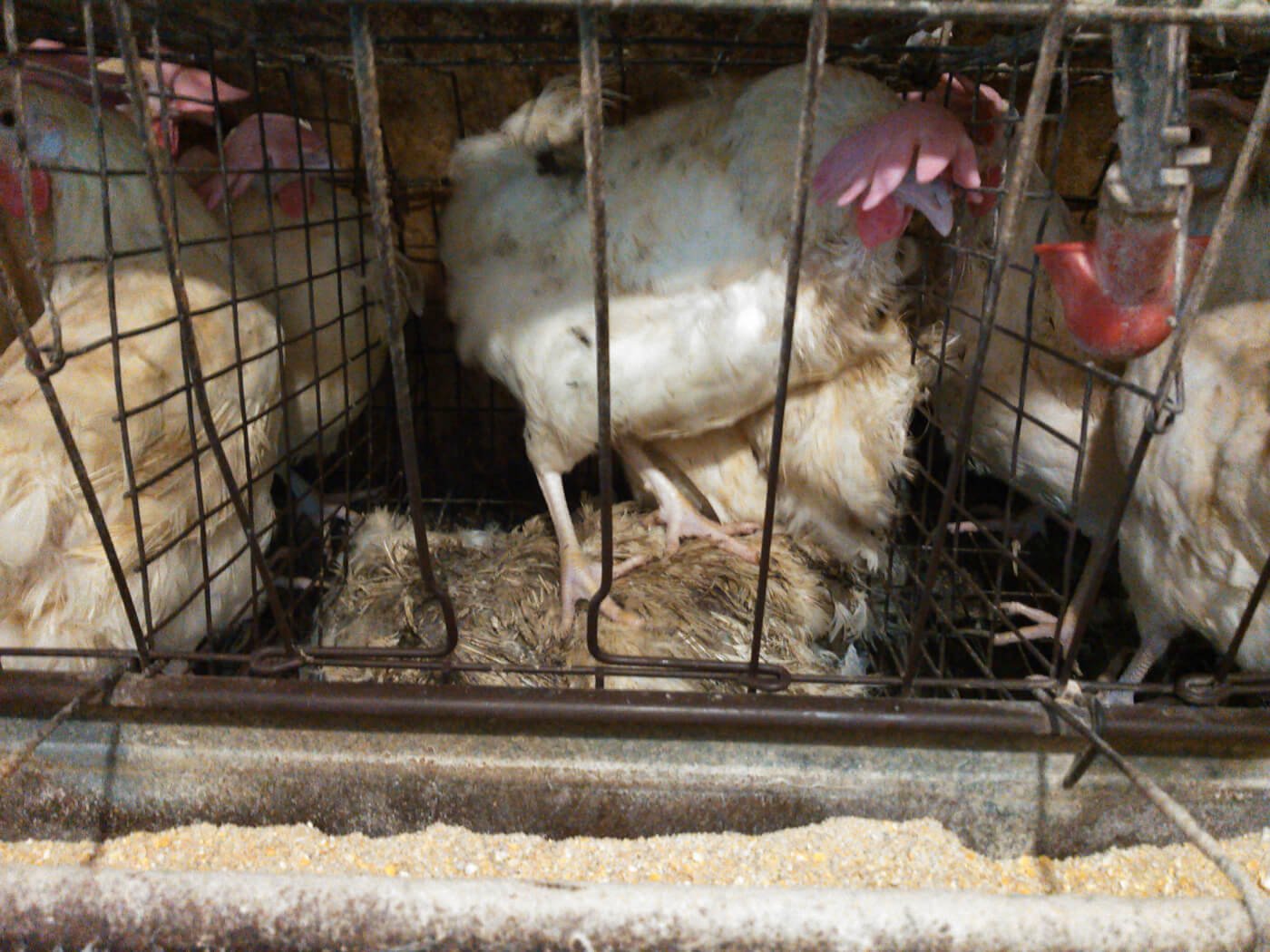
Immense Pain, Psychological Distress, and Agonizing Deaths
Many of the dead hens had apparently succumbed to heatstroke, a terrifying death often accompanied by seizures.
When the temperature in the farm’s massive sheds soared day after day, the hens—who are unable to sweat—panted in an effort to cool themselves. Some were even denied access to water.
According to one veterinary expert, “In very hot or humid climates, birds must have free access to cool drinking water at all times as well as access to other cooling measures (space to extend their wings, fans, misters, water and dust baths) to prevent heat stress. Heat stroke occurs when the body cannot adequately dissipate accumulated heat and results in organ damage, respiratory distress, collapse, disorientation, seizures, and death. Heat stress causes immense pain and psychological distress and … agonizing deaths.”
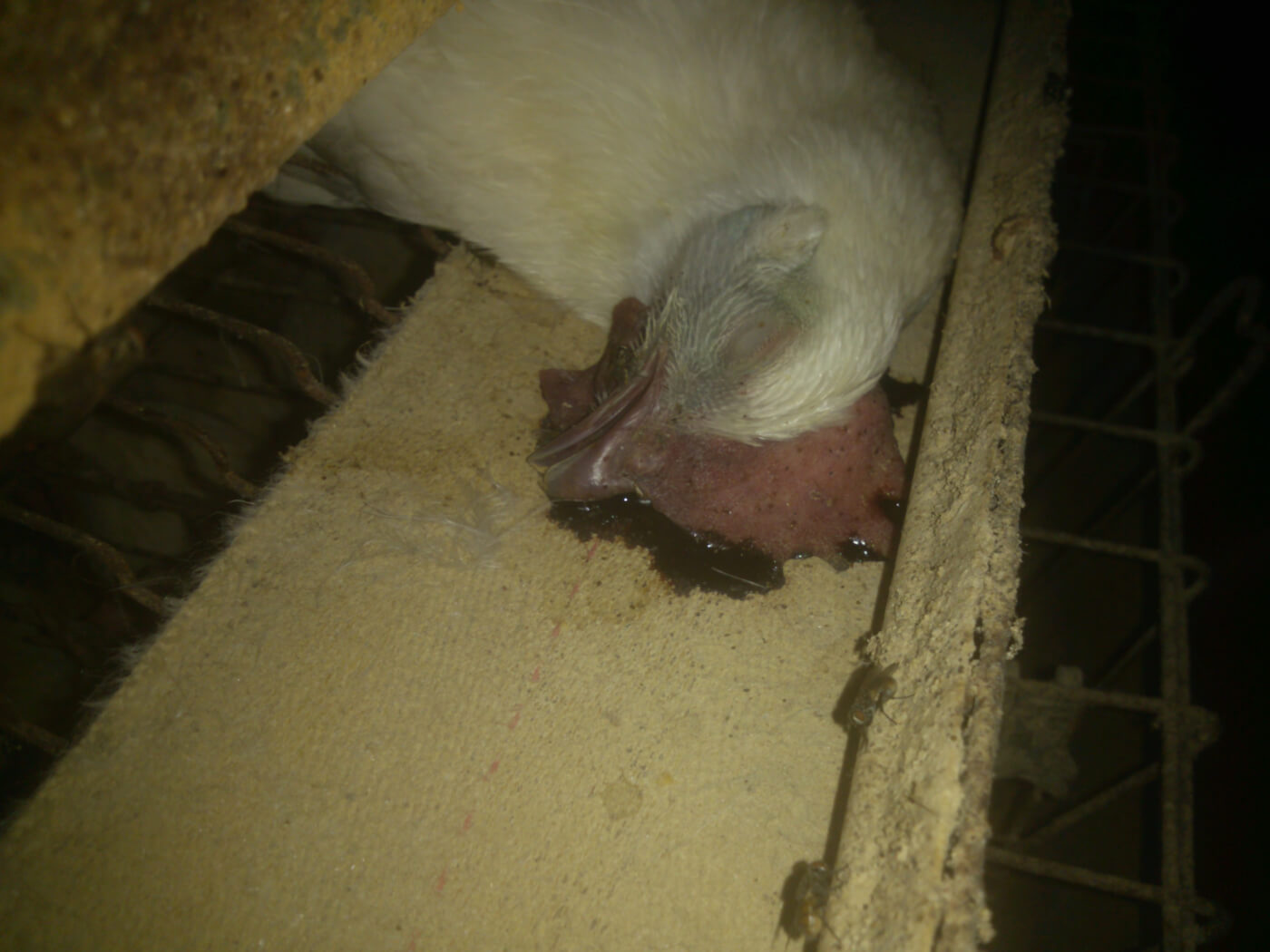
Left for Dead Amid Piles of Feces
Dead chickens littered the shed floors and were eventually tossed into manure pits, where feces had accumulated in piles up to 5 feet high.
In one pit, a debilitated hen was found amid other chickens’ rotting remains and with no water. When the eyewitness reported this bird’s plight to a worker, he said that she’d be dead soon and walked away, leaving her to die.
PETA’s eyewitness found other live chickens in the pits, having fallen or been tossed out of the cages. They were exposed to ammonia, which was probably responsible for scalding their skin and causing breathing difficulties.
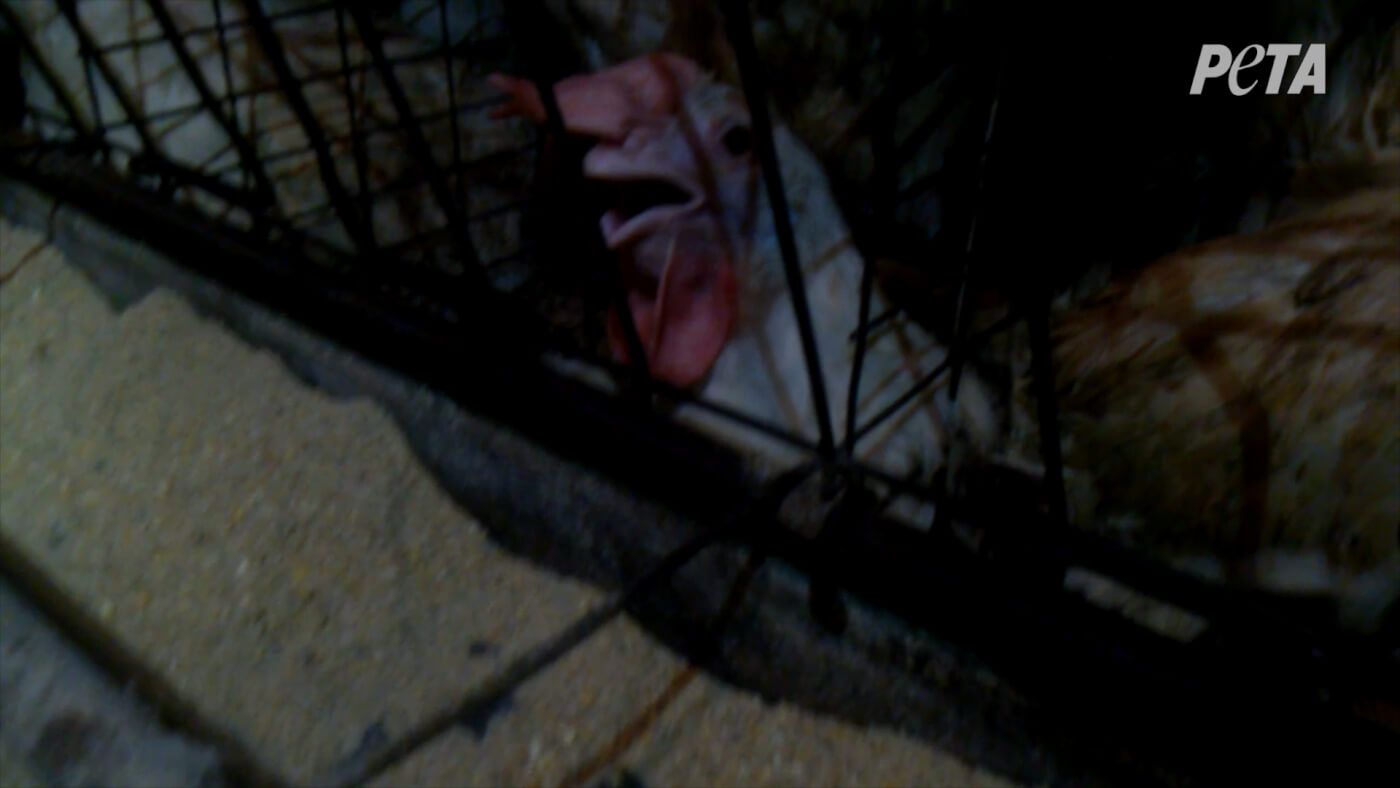
Injured, Sick, and in Agony
Mahard’s supervisor and workers denied sick and injured hens the care they needed—not even a quick, painless end to their obvious suffering.
One hen’s leg was stuck in a cage. The eyewitness untangled her and reported that her leg was likely broken. A worker indicated that the hen would be dealt with the next day.
A day later, the farm supervisor was told that the bird still needed help. The eyewitness provided the dehydrated, thirsty hen with water, but a worker proceeded to grab the frightened bird, pull her out of her cage by a fragile wing, drop her on the floor, and leave her there to die.
Other hens suffered from a prolapsed vent, which is a painful, sometimes fatal condition that can be caused by a poor diet or the strain of excessive egg-laying.
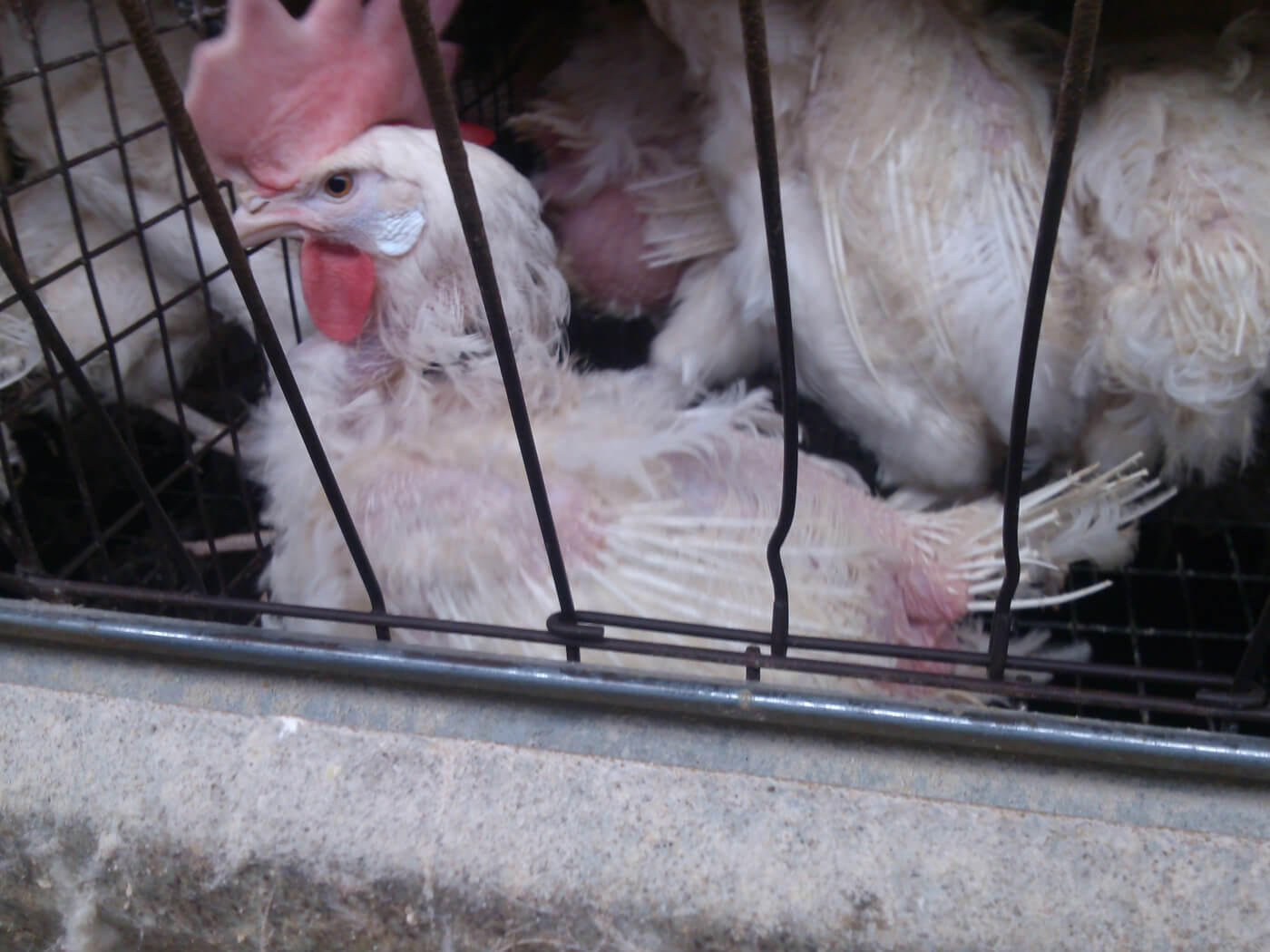
Trapped and Stressed in Cramped Cages, Unable to Escape Their Own Waste
Hens had no place to stand, sit, or lie down except on the wire flooring of the cages, which digs into their feet.
Unable even to spread their wings or form a pecking order in such severely cramped and stressful conditions, many hens resort to pulling out their own feathers.
The hens were packed so closely together that they had no choice but to urinate and defecate on one another. Chickens are clean, fastidious animals who need to preen and take regular dust baths. But on farms like Mahard’s, they’re forced to live in filth.
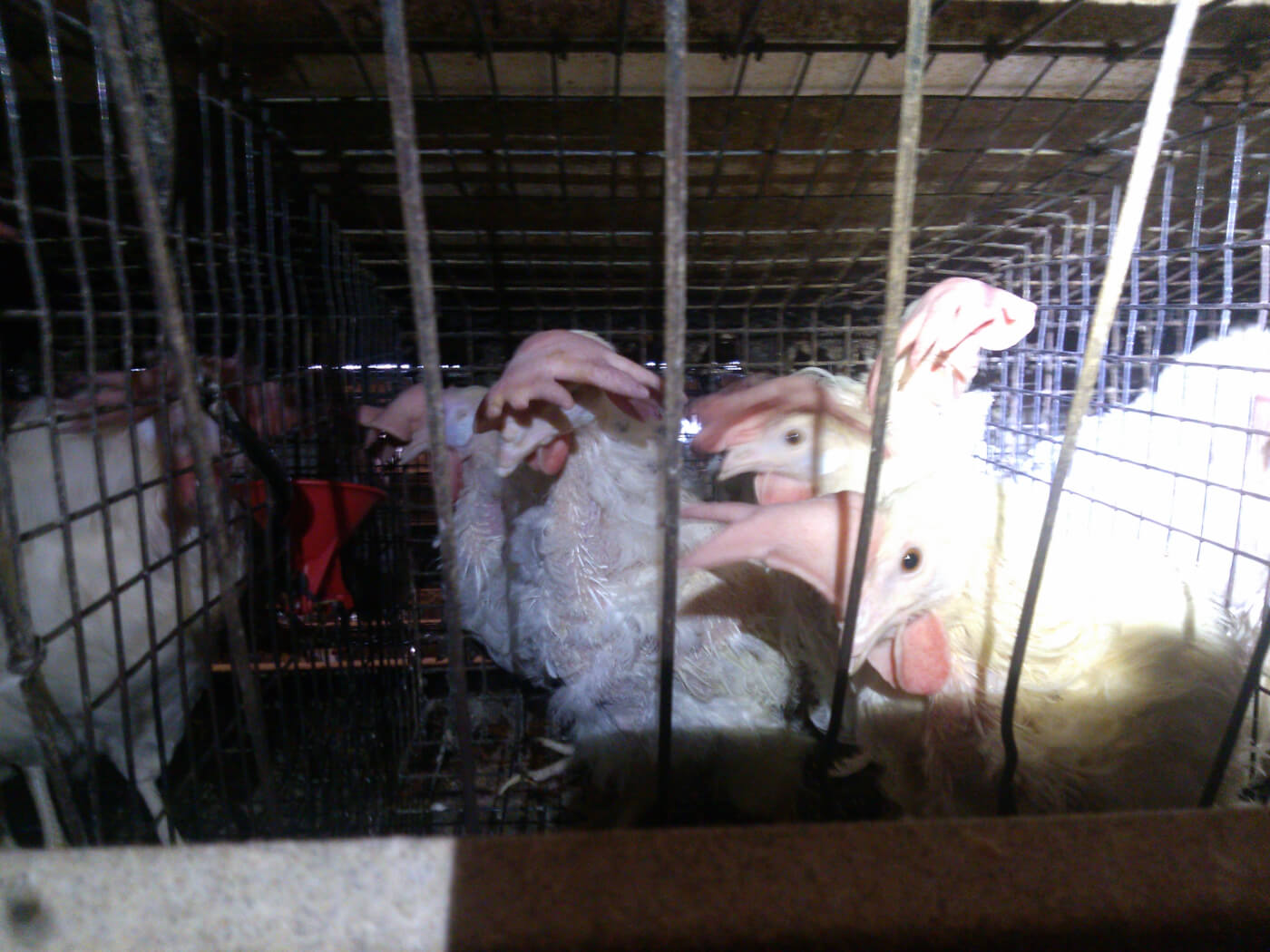
Chickens Are Killed—in Violent and Painful Ways—to Supply Store-Bought Eggs
Billions of hens are exploited for their eggs in warehouses like Mahard’s. “Layer” hens are selectively bred to produce as many eggs as possible. After about two years of exploitation, they’re “spent” and their egg production declines.
Once they were no longer profitable, tens of thousands of hens were roughly yanked out of their cages, slammed against metal boxes, stuffed into the boxes, and then crudely gassed with carbon dioxide—an acidic gas that can cause extreme pain.
Many hens survived all that, only to be dumped onto a conveyor belt and then into trucks, where they landed amid massive piles of their dead cagemates. Workers tried to kill the survivors by slamming them against the trucks, beating them with a piece of wood, or breaking their necks.
Some hens survived even that—and were left to die in agony, likely of suffocation, under the bodies of other chickens.
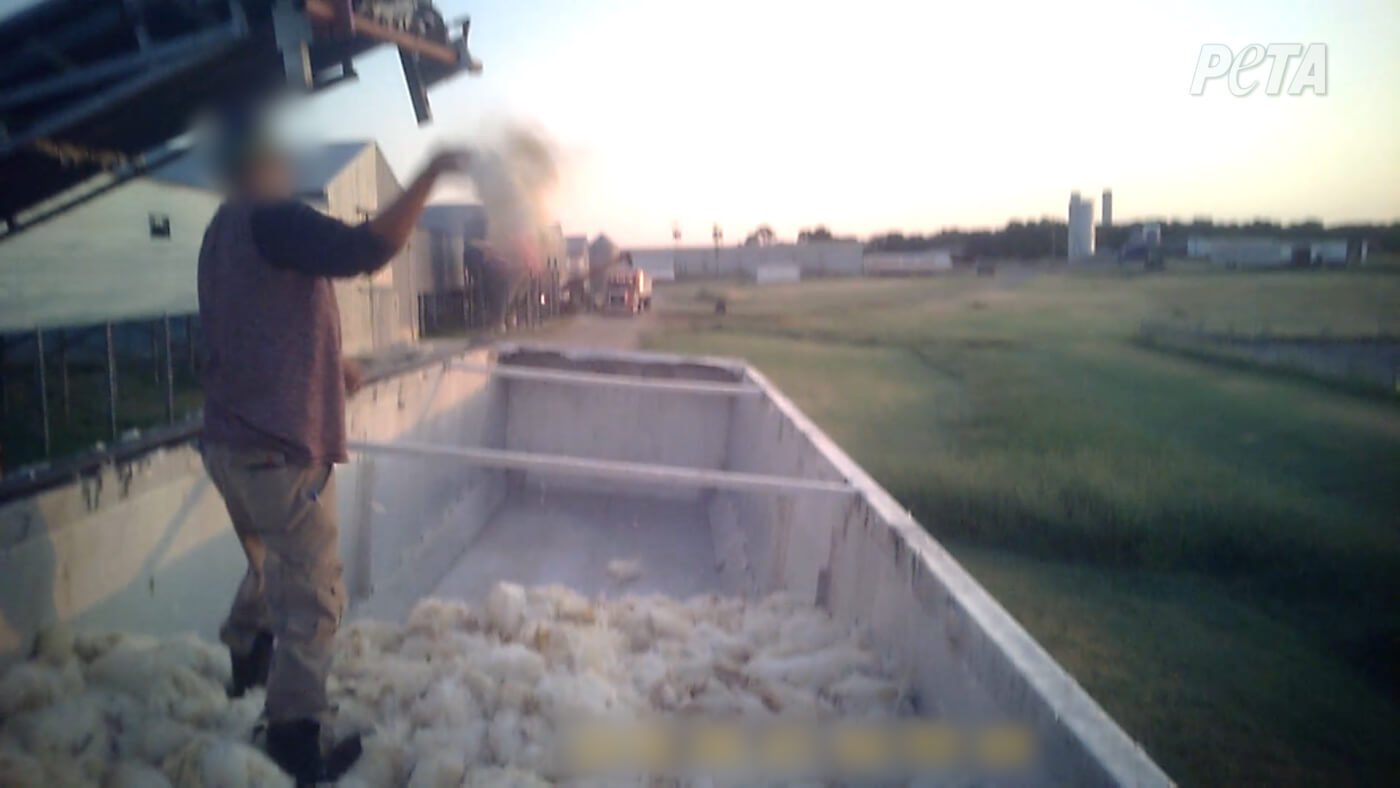
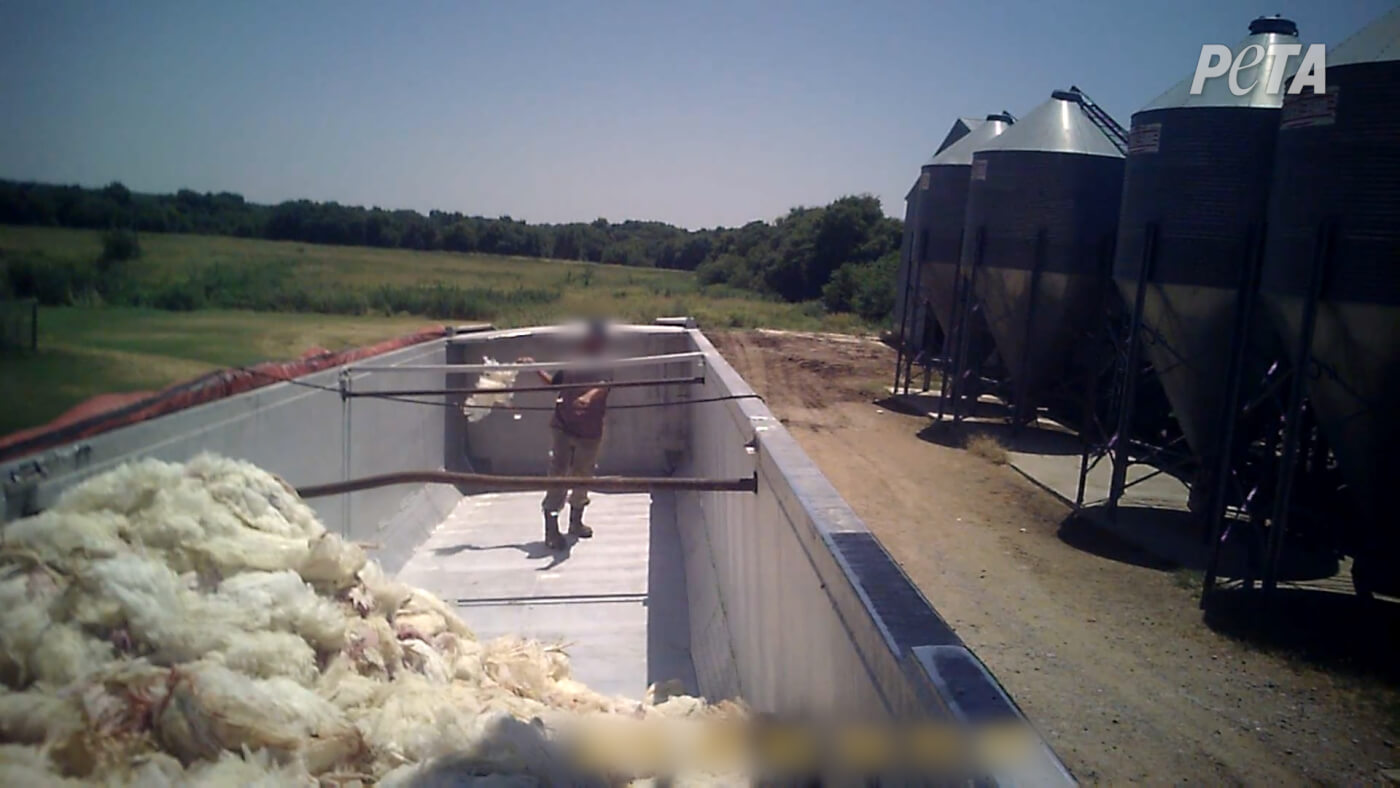
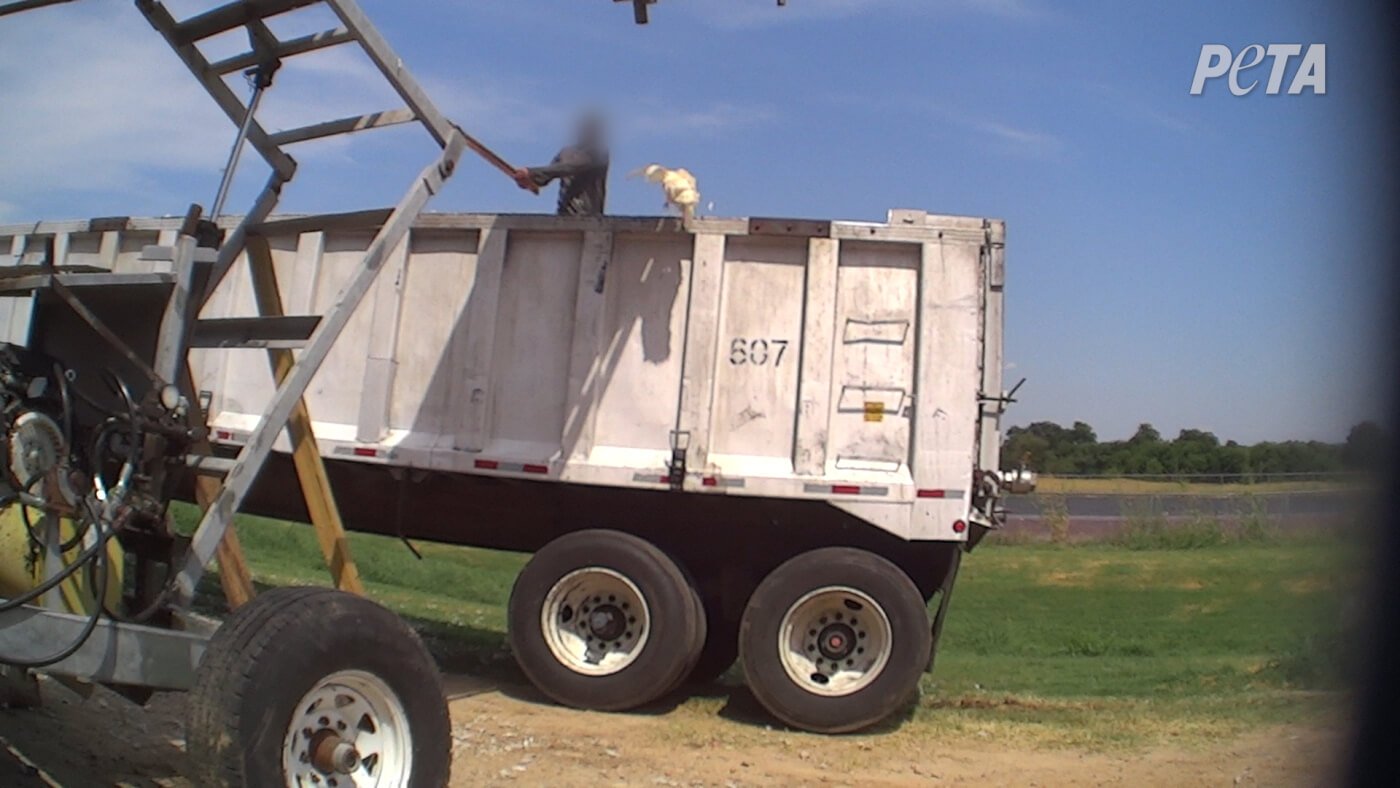
This Kroger Supplier Is No Stranger to Law-Enforcement Officials
Following PETA’s investigation, the Murray County, Oklahoma, sheriff’s office opened a criminal investigation into Mahard and filed probable cause affidavits with prosecutors alleging felony cruelty-to-animals offenses.
And in April 2017, the U.S. Food and Drug Administration warned Mahard about “serious violations” of salmonella-prevention regulations related to fly and rodent control at this and other farms.
Mahard’s run-ins with federal officials stretch all the way back to at least 1983, when the company pleaded guilty to conspiring to transport undocumented immigrants from Mexico to its Prosper, Texas, farm, where workers reportedly took home $84 per 66-hour work week.
Between 1997 and 2011, Mahard was assessed or agreed to more than $1.9 million in penalties in cases brought by the Environmental Protection Agency, largely for allegedly polluting water by spreading chicken manure on fields. Between 2006 and 2016, U.S. Department of Labor officials penalized Mahard more than $63,000 for 245 alleged violations of labor law. And in 2012, the Federal Motor Carrier Safety Administration fined Mahard more than $10,000.
Hens Need You to Help Stop This!
The best thing that you can do for hens is to refuse to buy their eggs and flesh. With so many delicious, healthier options, it’s never been easier to leave animal-derived foods off your plate.
Please also urge the farm’s owners to put an end to egregious cruelty and widespread, unnecessary suffering at Mahard. In November 2019, Cal-Maine Foods, Inc., acquired Mahard’s egg factories in Texas and Oklahoma. Ask what Cal-Maine has done to stop workers at this factory and other Mahard operations from beating chickens against metal boxes, trying but failing to gas them to death before dumping them—alive—into trucks and then slamming the survivors against the metal sides and bludgeoning them to death.
